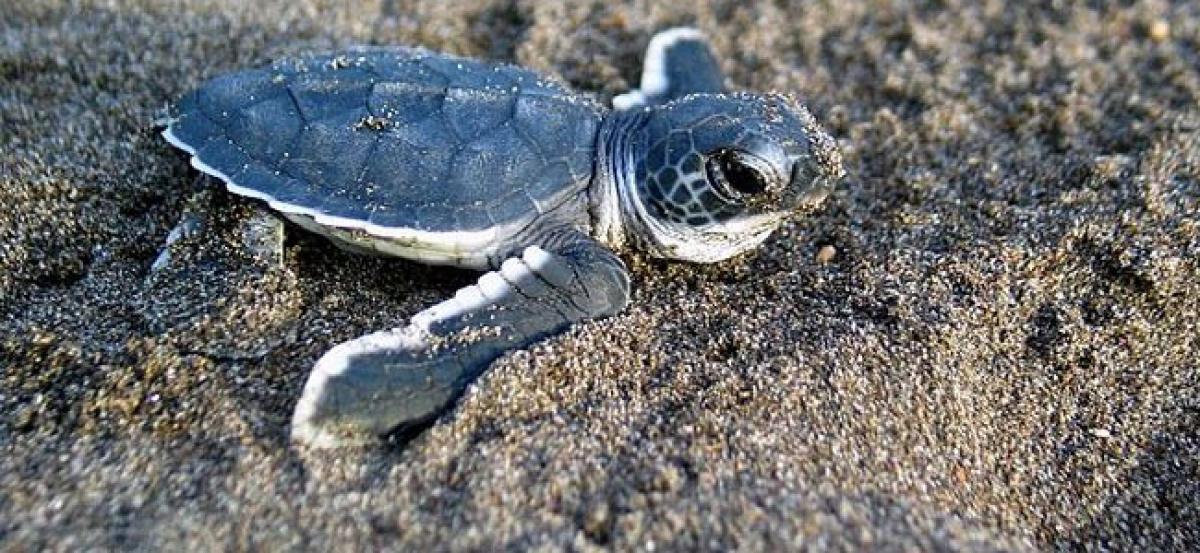Live
- Hyderabad fastest growing city among 6 metros
- MyVoice: Views of our readers 20th November 2024
- Tamil Nadu, Manipur enter final rounds
- Anupama enters 2nd round; Sumeet-Sikki also win
- Stage set for Mahayuti-MVA 'Maha' yudh today
- India beat Japan 2-0, to face China in final
- Space X launches ISRO's communication satellite
- Sensex, Nifty rebound on value buying
- Eatala dares Revanth for debate on Cong 6Gs
- Modi strengthens global ties at Rio de Janeiro
Just In

Inching closer to cracking the 50-year-old puzzle of how temperature turns baby turtles male or female, researchers have uncovered a molecular link that connects temperature with sexual development.In turtles and other reptiles, whether an egg hatches male or female depends on the temperature of its nest.
New York : Inching closer to cracking the 50-year-old puzzle of how temperature turns baby turtles male or female, researchers have uncovered a molecular link that connects temperature with sexual development.In turtles and other reptiles, whether an egg hatches male or female depends on the temperature of its nest.
The phenomenon was first discovered in reptiles more than 50 years ago, but until now the molecular details were a mystery.In a study published in the journal Science, the researchers said they have finally identified a critical part of the biological "thermometer" that turns a developing turtle male or female.
The explanation lies not in the DNA sequence itself -- the A's, T's, C's and G's -- but in a molecule that affects how genes are expressed without altering the underlying genetic code, the researchers said.
"Temperature-dependent sex determination has been a puzzle for a really long time," said Blanche Capel, Professor at Duke University in North Carolina, US.
"This is the first functional evidence of a molecular link that connects temperature with sexual development," Capel said.
Unlike humans and most other mammals, the sex of many turtles, lizards and alligators is not determined by the chromosomes they inherit, but by ambient temperatures during a sensitive stage of development.
For a common pond and pet turtle called the red-eared slider, for example, eggs incubated at 32 degrees Celsius produce all female hatchlings, while those kept at 26 degrees Celsius hatch as males.
In the study, the researchers showed that cooler egg incubation temperatures turn up a key gene called Kdm6b in the turtle's immature sex organs, or gonads.
This in turn acts as a biological "on" switch, activating other genes that allow testes to develop.

© 2024 Hyderabad Media House Limited/The Hans India. All rights reserved. Powered by hocalwire.com







